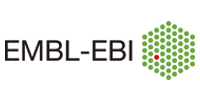Search results
-
e-learning
Multi-sample batch correction with Harmony and SnapATAC2
 •• intermediate10x Single Cell epigenetics
•• intermediate10x Single Cell epigenetics -
Recorded webinar
Harmony in diversity: exploring the rich microbiomes of South American wildlife
Microbiology Microbial ecology Metagenomics
-
Video
Data harmonization and enrichment using EMBL-EBI ontology tools
 • beginnerData management Data curation and archival Ontology and terminology CINECA data harmonization Annotation Ontologies
• beginnerData management Data curation and archival Ontology and terminology CINECA data harmonization Annotation Ontologies -
Recorded webinar
Bringing it all together: human cohort standards, tools and applications

-
Recorded webinar
Perturbation Catalogue: democratising genetic perturbation data for research and drug discovery
Genetic variation Drug discovery
-
Recorded webinar
User experience design for more user-friendly applications
Data quality management
-
Recorded webinar
A guide to identifying suitable patient-derived cancer models in CancerModels.Org

-
Video
Data Gravity in the Life Sciences: Lessons learned from the HCA and other federated data projects
 •• intermediateData architecture, analysis and design Cloud computing Data analysis Standards Translational research
•• intermediateData architecture, analysis and design Cloud computing Data analysis Standards Translational research -
Recorded webinar
BioChatter and the future of LLM driven bioscience
Machine learning
-
WEBINAR: Global data resources for human genomics and health
Bioinformatics Genomics
-
Recorded webinar
Impact of AlphaFold on teaching and training in life sciences

-

CINECA PROJECT
CINECA’s aim is to deliver a federated infrastructure for data discovery and sharing of human genetic and phenotypic data for research that is interoperable across continents. CINECA [Common Infrastructure for National Cohorts in Europe, Canada and Africa] is funded by the European Union Horizon...
17 training materials0 events (3 past events)CINECA PROJECT https://www.cineca-project.eu/ https://tess.elixir-europe.org/content_providers/cineca CINECA’s aim is to deliver a federated infrastructure for data discovery and sharing of human genetic and phenotypic data for research that is interoperable across continents. CINECA [Common Infrastructure for National Cohorts in Europe, Canada and Africa] is funded by the European Union Horizon 2020 programme and the Canadian Institutes of Health Research. /system/content_providers/images/000/000/140/original/CINECA_logo.png?1589875546 -

OpenRiskNet
The main objective of OpenRiskNet is to develop an open e-Infrastructure providing resources and services to a variety of communities requiring risk assessment, including chemicals, cosmetic ingredients, therapeutic agents and nanomaterials.
OpenRiskNet is
* a virtual research environment for...0 events (10 past events)OpenRiskNet https://openrisknet.org/ https://tess.elixir-europe.org/content_providers/openrisknet The main objective of OpenRiskNet is to develop an open e-Infrastructure providing resources and services to a variety of communities requiring risk assessment, including chemicals, cosmetic ingredients, therapeutic agents and nanomaterials. OpenRiskNet is * a virtual research environment for predictive toxicology and chemical and nanomaterial risk assessment, * harmonising access to data and facilitating interoperability of software, * easily deployable to single computers, public and in-house cloud solutions, * addressing the needs of industry and academic researchers, risk assessors, regulators and informed public. OpenRiskNet (Grant Agreement 731075) is a 3-years project funded by the European Commission within the Horizon2020 Programme /system/content_providers/images/000/000/097/original/ORN-Web_Logo3.png?1533933310 -

BY-COVID
BeYond-COVID (BY-COVID) aims to provide comprehensive open data on SARS-CoV-2 and other infectious diseases across scientific, medical, public health and policy domains. It strongly emphasises mobilising raw viral sequences, helping to identify and monitor the spread of SARS-CoV-2 variants. The...
31 training materialsBY-COVID https://by-covid.org https://tess.elixir-europe.org/content_providers/by-covid BeYond-COVID (BY-COVID) aims to provide comprehensive open data on SARS-CoV-2 and other infectious diseases across scientific, medical, public health and policy domains. It strongly emphasises mobilising raw viral sequences, helping to identify and monitor the spread of SARS-CoV-2 variants. The project further accelerates access to SARS-CoV-2 and COVID-19 and linking patient and research data. To ensure interoperability of national and global efforts, BY-COVID enables federated data analysis compliant with data protection regulations, harmonise and manage metadata and sample identifiers, and facilitate long-term cataloguing. In an unprecedented and unique interdisciplinary effort, BY-COVID brings together 53 partners from 19 countries and stakeholders from the biomedical field, hospitals, public health, social sciences and humanities. Ultimately, it will improve European readiness for future pandemics, enhance genomic surveillance and rapid-response capabilities. In addition, BY-COVID serves as a demonstrator of interdisciplinary work across country borders. The project's outputs will allow scientists across multiple domains, including SMEs and industry, to access varied data with the potential to generate new knowledge on infectious diseases. /system/content_providers/images/000/000/810/original/BYCOVID_logo.png?1727690329